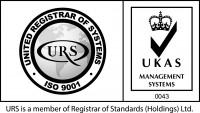Key Considerations for Selecting a UPS System
When choosing or specifying a UPS system, it is essential to carefully evaluate two crucial factors:
Power Requirements:
Determine the amount of power your UPS system needs to supply, typically specified in VA or Watts. This information can be obtained from equipment rating labels or datasheets, which may indicate power in Amps, Watts, or VA. If you have a mix of these measurements, our experts at Cymru Wales Power Protection can assist in cross-referencing the figures for accurate calculations. Additionally, power monitoring of your existing system can provide precise readings of power consumption. It's also important to consider future power requirements. Will your power needs significantly increase? Modular UPS systems are available that can seamlessly scale with your growing business. Since predicting future power requirements is challenging, it is recommended to oversize the UPS to accommodate potential growth. UPS units are expected to last for several years, with larger units lasting up to 15 years. Keep in mind that when sizing a UPS, it's not the power rating of the electronics that significantly affects the price; it's the cost of the batteries.
Battery Backup Time (Autonomy):
UPS systems offer backup times ranging from a few minutes to several hours. Before determining the backup time required, consider the following question:
In the event of a prolonged power outage, what actions do you intend to take?
- Simply shutting down servers and waiting for power restoration? If so, calculate the time needed to safely shut down critical equipment.
- Extending backup time to shut down a large database or manually close specific applications? Determine the estimated duration required for these tasks.
- Ensuring operational continuity for key personnel, telephone systems, or remote communication sites? A longer backup time will be necessary. Specify the duration needed to maintain essential operations.
If you require an extended backup time, it may be more cost-effective to install an emergency generator that can run as long as fuel is available. This way, you can reduce UPS battery backup time and offset the battery cost savings against the generator cost. Remember that UPS systems typically do not power computer room air-conditioning units, which can cause the server room to overheat during a mains power failure. An emergency generator can power the air-conditioning units and the UPS.
Communications:
Depending on the UPS's location, remote communications may be crucial for keeping users fully informed about the UPS's operational status. While all UPS systems provide audible and visual alarm signaling, it is vital to ensure key personnel are aware of the UPS status when the unit is located remotely, such as in a computer room or plant room. Most UPS systems feature an RS-232 port for local communications with a PC. Additional communication options include:
- SNMP Communications Card: Enables network communications with servers and users, allowing text messaging and email notifications of UPS status changes.
- Remote Alarm Panels: Provide remote audible and visual alarms in manned areas.
To facilitate UPS communications with building management systems (BMS) and other control devices, various adaptors are available, such as MODBUS/JBUS, RS-485, Profibus DP, and more.
At Cymru Wales Power Protection, we understand the importance of assessing power requirements, battery backup time, and communication needs for a reliable and efficient UPS solution. Our knowledgeable team is ready to assist you in selecting the right UPS system that meets your specific requirements and ensures the continuous operation of your critical equipment and systems.
Return to our FAQ page





